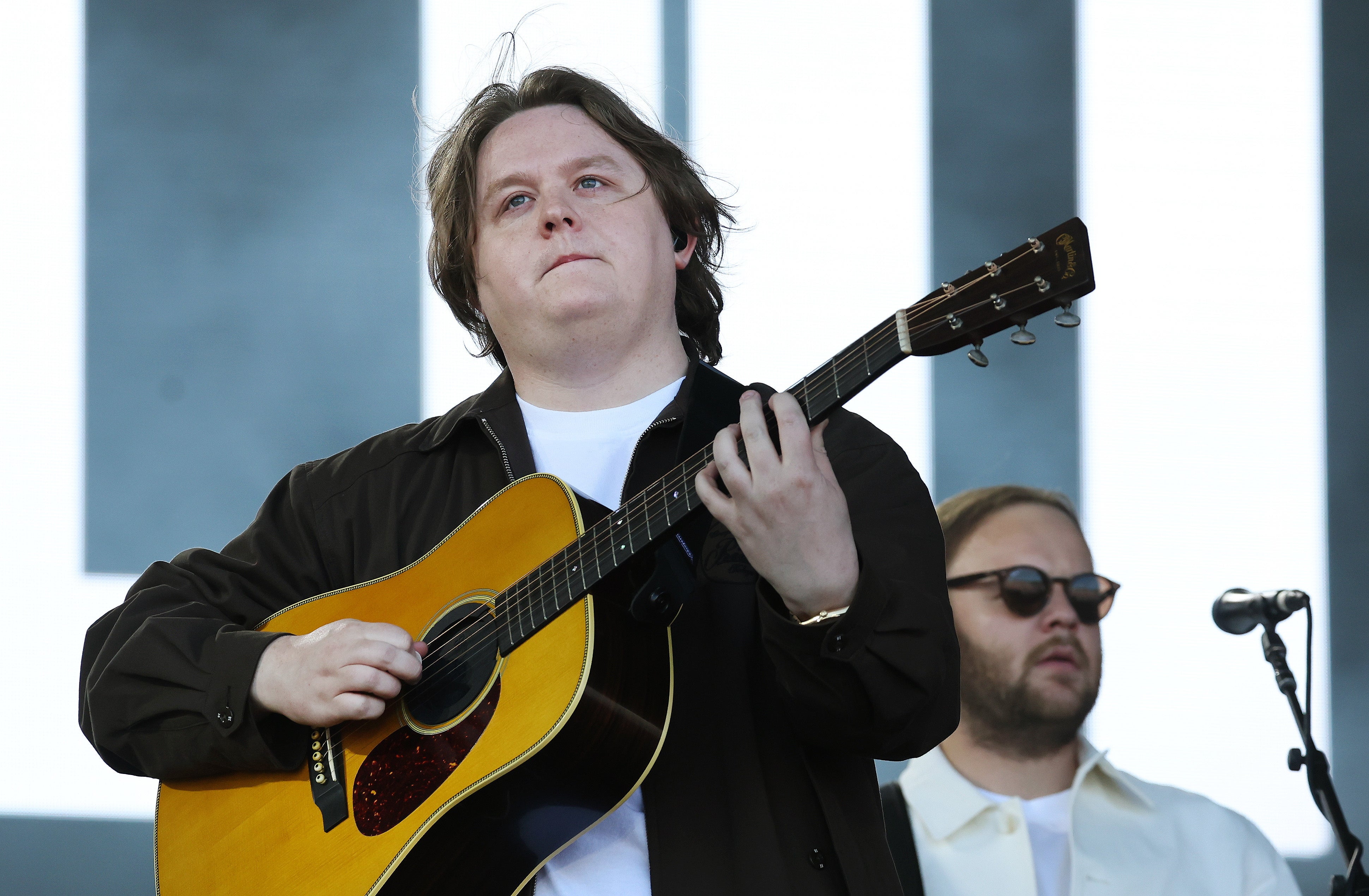There ought to be nothing romantic about Lewis Capaldi. The Glaswegian singer-songwriter has spent his career shunning the silicone gloss of pop stardom, for something rough and real – but hardly the stuff of fairytales. He’s funny, bolshy, and utterly unpretentious: a rambunctious character who has, thanks to that sonorous god-given baritone, fallen backwards into the sort of mainstream musical career ordinarily reserved for pretty crooners and blandly alien waifs.
And yet, somehow, Capaldi’s arc has become pure storybook romance. It began at Glastonbury two years ago, when he was unable to make it through a career-capping Pyramid Stage performance, struggling on the day with tics (Capaldi has Tourette syndrome) and his mental health. There was an element of victory in defeat for the singer – the sight of a heaving crowd, all joining in solidarity to warble their way through “Someone You Loved” when Capaldi’s voice gave out, was profoundly moving. But it was still an occasion more bitter than sweet: Capaldi left the stage dejected, and stepped back from music for two years to focus on his own wellbeing. Until today, that is, when he returned to the Pyramid Stage for a surprise set.
And that set, which included the first live rendition of his new comeback single, “Survive”, can surely be seen as nothing short of a triumph. The Pyramid Stage was rammed in anticipation, and Capaldi, a performer reborn, gets a hero’s welcome. “This set was the worst-kept f***ing secret,” he quips. “I’m not gonna say much up here today, because if I do I’ll probably start crying.” He avoids it, just barely - but I’m not sure the same can be said for everyone in the crowd. His voice is sturdy and mellifluous throughout; when it does break, it’s from sheer euphoria.
Glastonbury is a festival of myth and narratives, and Capaldi is not the first act to have found comeback glory on the Pyramid Stage. Kylie Minogue missed out on a planned headline set in 2005 after being diagnosed with breast cancer; 14 years later, she stole the show in the Legends slot. Britpop icons Blur delivered what is still considered one of the best headline shows of all time when they reformed for Glastonbury in 2009, having disbanded six years prior. The Arctic Monkeys’ first headline slot in 2007 was frustrated by sound issues; their redemption came in 2013, with a definitive performance in the wake of AM.
Capaldi’s 35-minute slot might be too slight to rank among the most seismic comebacks Worthy Farm has seen – he had to shush emergent chants of “Ohhhh, Lewis Capaldi” to try and keep on schedule – but on a human level, it’s as potent and personal as any.
It’s significant – perhaps a welcome sign of changing times – just how Capaldi’s Glastonbury implosion was received two years ago. The response wasn’t one of judgement, but of compassion: abject sympathy for a man going through difficulties beyond his control. Often, when we praise music artists for their “vulnerability”, it refers to something controlled and deliberate, a calculated prying open of wounds or baring of the soul. Capaldi was vulnerable in a way that artists seldom are – completely involuntarily – at the most visible moment of his life. That he was able to reckon with this, to acknowledge the problem, take a proper amount of time to address it, and come back stronger, speaks volumes about him as a person, and flies in the face of the sort of toxic masculine posturing that has too often been synonymous with men in music.
It helps, naturally, that Capaldi is so eminently likeable, a performer who seems to pump irreverent charm straight down the microphone cord and out through the speakers like a sprinkler system. If you don’t care for his music – certainly, there are many who find his brand of smooth, down-the-line balladry a little on the generic side – it doesn’t matter a whit. Everyone seems to be rooting for him, stans and haters alike.
It would be remiss, too, to overlook the specifics of Capaldi’s breakdown in 2023 – particularly the role that his Tourette’s played in it. Along with ascendant American star Billie Eilish, Capaldi has been instrumental in raising awareness of Tourette’s, of dispelling the reductive stereotypes that often surround the condition. That he is able to recover just as unequivocally as he stumbled is significant and something to be celebrated.

These days, the word “inspirational” is deployed mostly as cardboard cliche or embarrassing hyperbole, but it’s hard to know how else to describe Capaldi’s return. That fizzled, deflating day in June 2023 will always stay with him, as much as this comeback will. But there’s power, and pride, to be found in both.
This might have had the feel of a fairytale ending, but Capaldi, still only 28 years old, seems like he’s just getting started. If there’s such a thing as a fairytale beginning, I think we just saw it. Or, to put it in his words: “My name’s Lewis Capaldi, and I’m f***ing back, baby.”







